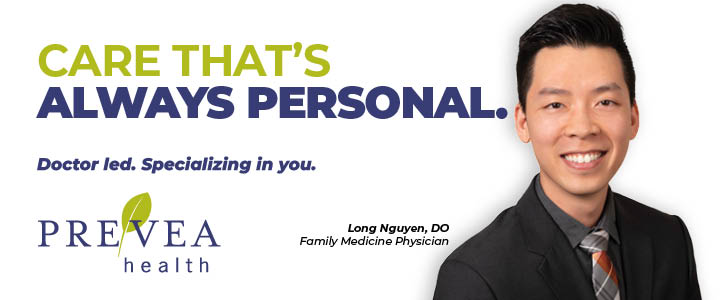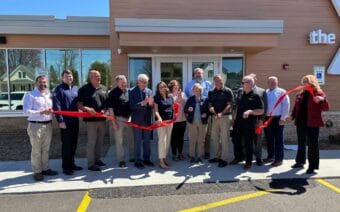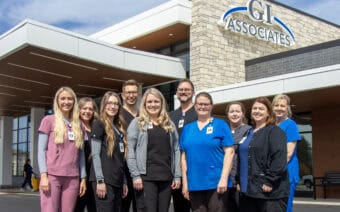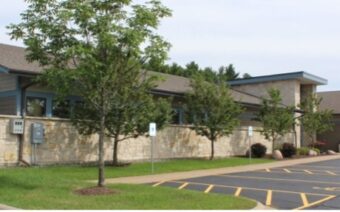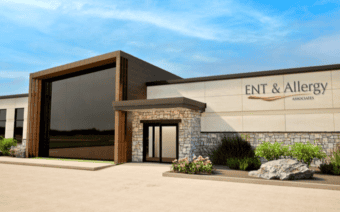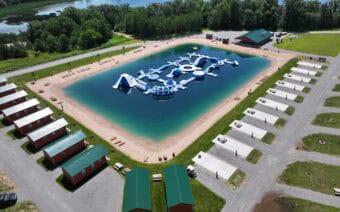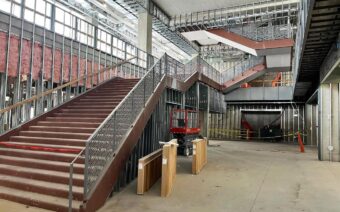
February 5, 2024
NORTH CENTRAL WISCONSIN – According to the Association of American Medical Colleges (AAMC) – a nonprofit focused on transforming health care through innovative medical education, cutting-edge patient care and groundbreaking medical research – between 2011-20, 67.8% of individuals who completed their residency in psychiatry remained in the state where they did their training.
More than a decade ago, around the time AAMC started to collect the above data, the Medical College of Wisconsin’s (MCW) Milwaukee campus was looking at the shortages of health care throughout the state, and recognized rural areas needed more doctors.
“The idea being (that) they wanted to train doctors in the places where they wanted them to work,” Robert Gouthro, an assistant professor in the Department Of Psychiatry And Behavioral Medicine at the WCW, said. “There’s been a lot of data that shows doctors tend to stay where they train – at least for the first few years after they graduate.”
MCW then built two additional schools where they wanted to help grow healthcare workers: a Green Bay campus located in the Gehl-Mulva Science Center at St. Norbert College (161 Reid St.), and a North Central Wisconsin campus located inside Aspirus Wausau Hospital (1900 Westwood Drive Suite 3100).
Though starting the two medical schools was “quite revolutionary” – especially because the schools shortened the time it takes MD students to get their degree by almost a year – Gouthro said, “medical school is only the introduction to medical training.”
“Doctors get their specialty training by going to residency programs,” he said. “And to keep a trainee, you need to have residencies in the areas you want them to work (in).”
This, he said, led to MCW developing residencies to support the two medical schools.
“The psychiatry department (was) the first department to jump on the bandwagon and get started to create residencies in both locations,” he said. “So, we created a residency in Green Bay and then a residency here in (North) Central Wisconsin.”
Gouthro said he started Green Bay’s program and assisted in starting North Central Wisconsin’s program, which he is now the program director of.
Partnerships key to residencies
Though Gouthro and MCW were able to get the residencies off the ground, he said they wouldn’t be possible without creating several partnerships throughout each region.
“MCW needed to create partnerships to ensure there were appropriate patient encounters, covering all the different specialties or some specialty areas of psychiatry to make sure there were enough locations for (residents) to go to,” he said.
MCW, Gouthro said, is grateful to have several partnerships throughout North Central Wisconsin that provide residents with the best experience possible, including:
- North Central Health Care – Wausau
- Aspirus – Rhinelander and Wausau
- VA – Tomah
- Norwood Health Center – Marshfield
- Tamarack Health Ashland Medical Center
“We have a lot of different organizations we work with so residents get well-rounded training,” he said. “And the area benefits by having more people around to support mental health care.”
The residency program, Gouthro said, would also not be possible without WiNC GME Consortium (Wisconsin Northern & Central Graduate Medical Education Consortium) – an organization that addresses the need for additional graduate medical education resources by sponsoring residencies and other forms of education.
After completing medical school, doctors apply for their residency, which Gouthro said – in some ways – is like the NFL draft.
“We call it the residency match,” he said. “People apply across the country for the specialties they’re interested in, and then every year in March, (the) computer decides where you go.”
From there, Gouthro said doctors then apply and interview for their residency – as long as they want to go to the residency they were selected for.
“People we get typically want to work in rural areas,” he said. “We try to recruit people who have that interest.”
MCW’s Central Wisconsin residency will find out the next wave of doctors in March.
Residents, he said, rotate to all residency sites, switching locations every one to two months.
Residency experience
Throughout the four years of a doctor’s residency with Central Wisconsin’s Psychiatry Residency program, Gouthro said they will receive training in every area, such as inpatient, outpatient, addiction and geriatrics, as well as how mental health intersects with the law.
“We’re doctors first, so we have medical rotations and neurology rotations,” he said. “And then the remainder of our three and a half of the four years are focused solely on a psychiatry specialty.”
In a typical residency day, Gouthro said residents can expect to work with crisis services, an inpatient acute care unit, addiction clients, learn and provide psychotherapy and more.
“We do consultations to primary care clinics,” he said. “We have them work with law enforcement or with the legal system, and they provide testimony on people’s behalf. If somebody is on our medical floor at a hospital and needs psychiatric consultation, our residents can assist with that… You name it, we have to learn how to do it.”
Meeting the needs of the rural area
Since starting the psychiatry residency program in 2017, Gouthro said MCW has had three graduating classes.
Out of those three classes, he said three doctors have taken positions in rural areas that are covered by the program.
“North Central Health Care is covered by (two) MCW rural residency graduates,” he said. “We also have residents who have taken positions with Aspirus. We don’t require people to stay in the area by any means… but if we have one stay each year or every other year, that makes a significant impact on the area.”
Having the program in the North Central Wisconsin area, Gouthro said, has more than doubled the number of psychiatrists in the Wausau area – which doesn’t include the number of providers who have moved to the region to be a part of the residency.
“I would not be in Wausau if it wasn’t for medical education,” he said. “The two doctors I’ve mentioned working at North Central Health Care probably wouldn’t be here if it wasn’t for medical education… Looking back, you can see 15, 16, 17 providers are now in the area each year who would not be here if the residency wasn’t here.”
The addition of those providers, Gouthro said, has “helped improve the foundational services that need to be provided” in rural areas.
“Focusing on North Central Health Care, if you were to look at their outpatient clinic right now, I don’t believe they have a single full-time, in-person psychiatric provider,” he said. “They are part-time physicians, some remote physicians, but they do have at least three psychiatry residents there, every day, all week. This means there’s more in-person contact, so that’s a basic core service that is improved from their presence.”
Gouthro said a program like this can’t exist without the community’s support.
“It’s our goal to have the residents be involved in the community and give back,” he said.
Green Bay’s Psychiatry Residency program, he said, has provided a great example of the types of things MCW would like to implement in the North Central Wisconsin region.
“In Green Bay, we started a free mental health clinic… that was thought of by a resident,” he said. “We investigated how to do it, started it, and it’s been running for seven years now.”
Other community outreach Green Bay’s residency program has done, Gouthro said, include monthly talks on different mental health topics, crisis intervention training and having residents visit local schools to give talks.
“Our residents are involved in local, and even national, education sessions,” he said. “As an example, myself and a resident will be going to New York to present on how different generations approach graduate medical education and how to improve communication with those different styles, so that’s a big deal for a small program to be on a national stage.”
All in all, Gouthro said “it can’t be overstated” that it “takes a village to raise a resident.”
“We couldn’t do this with all the partners we work with,” he said. “(They) make it possible for us to be here.”
 Packerland Veterinary Center makes its mark with orthopedic services
Packerland Veterinary Center makes its mark with orthopedic services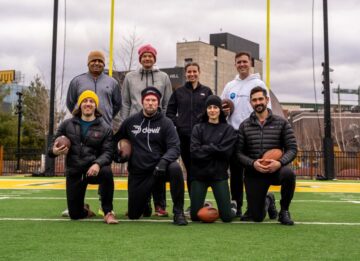 TitletownTech is nearly on the clock
TitletownTech is nearly on the clock

